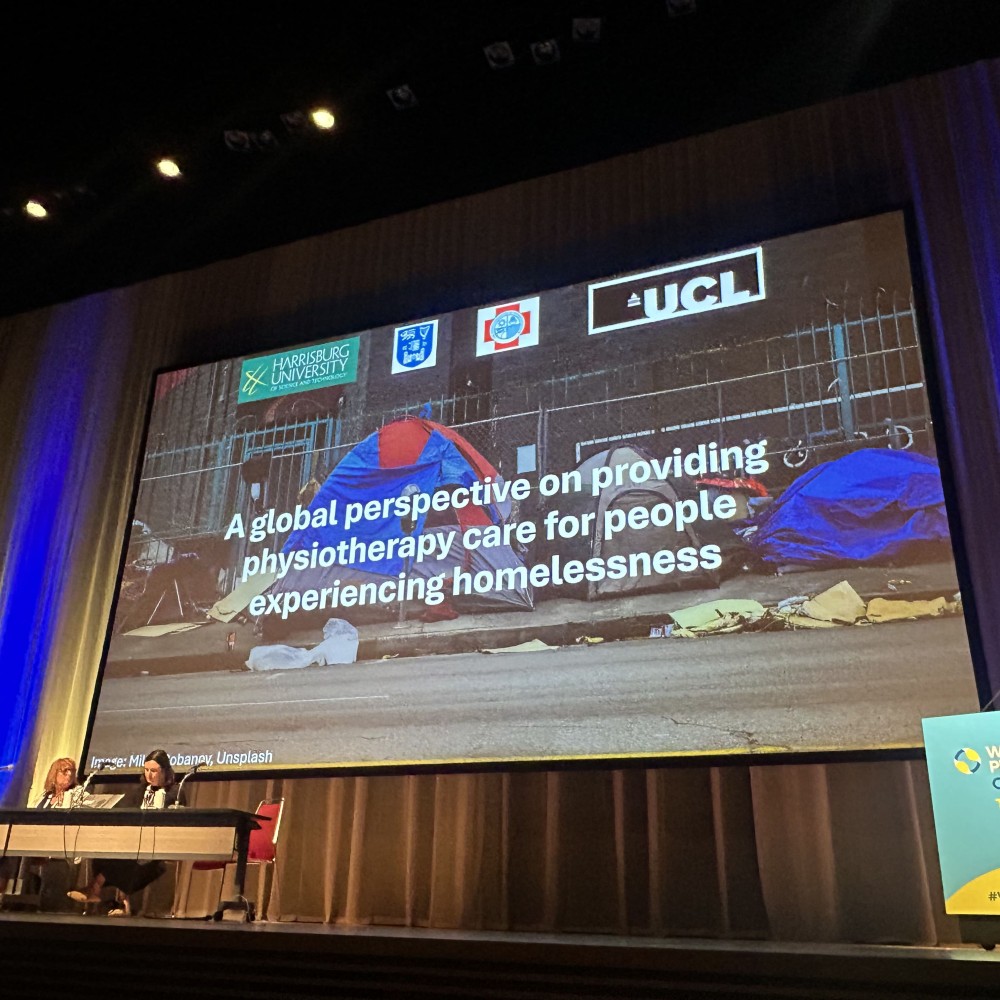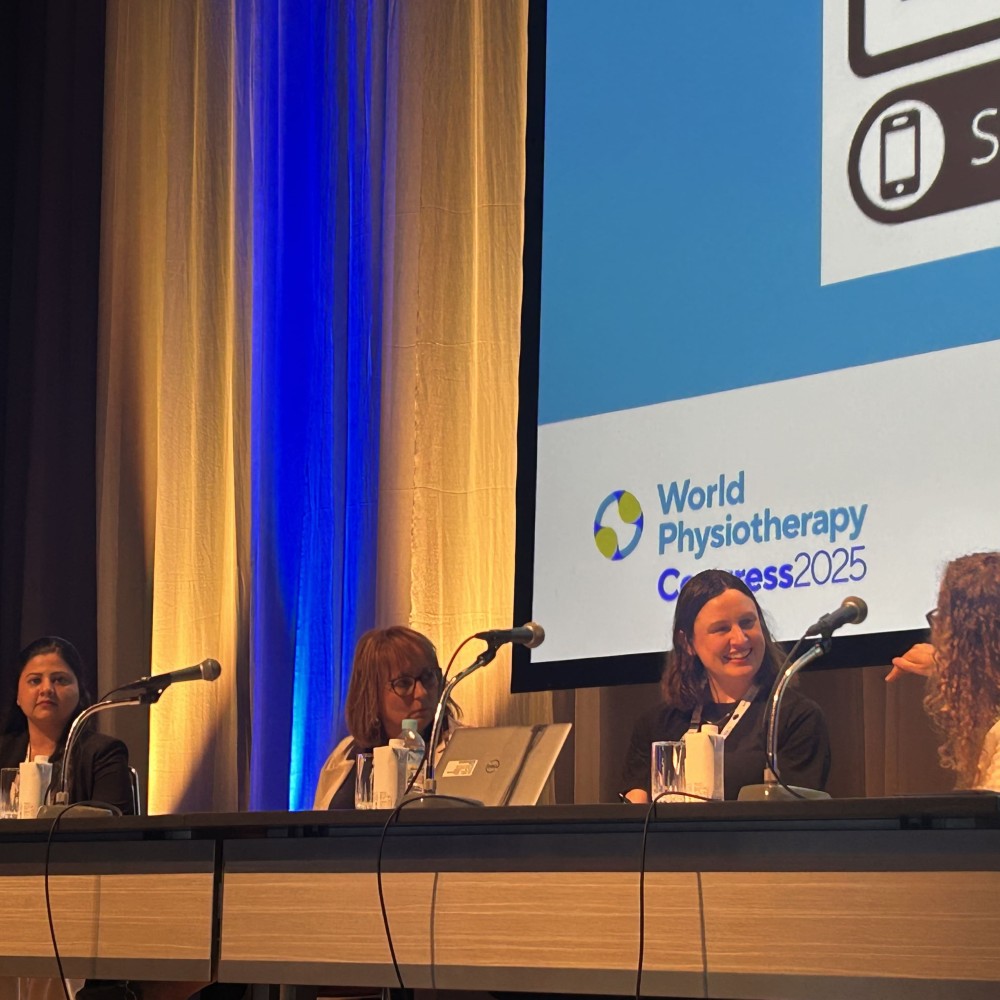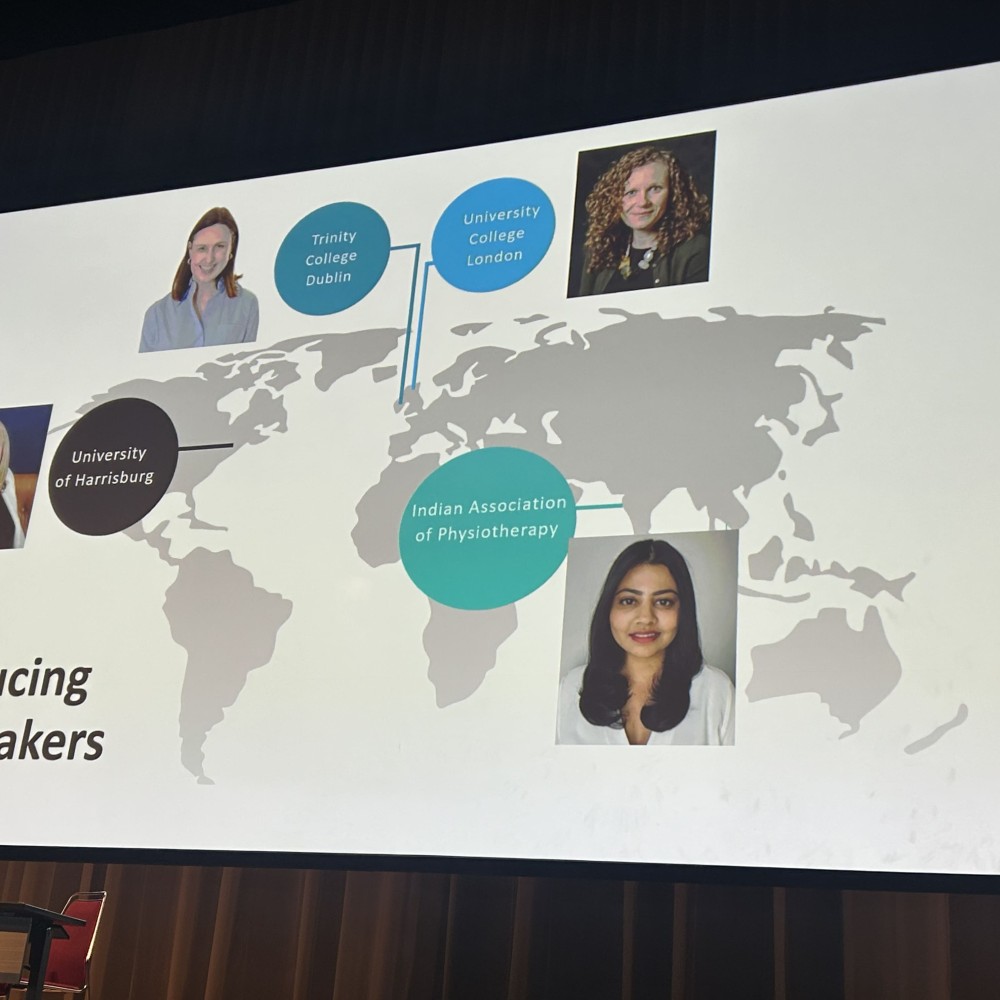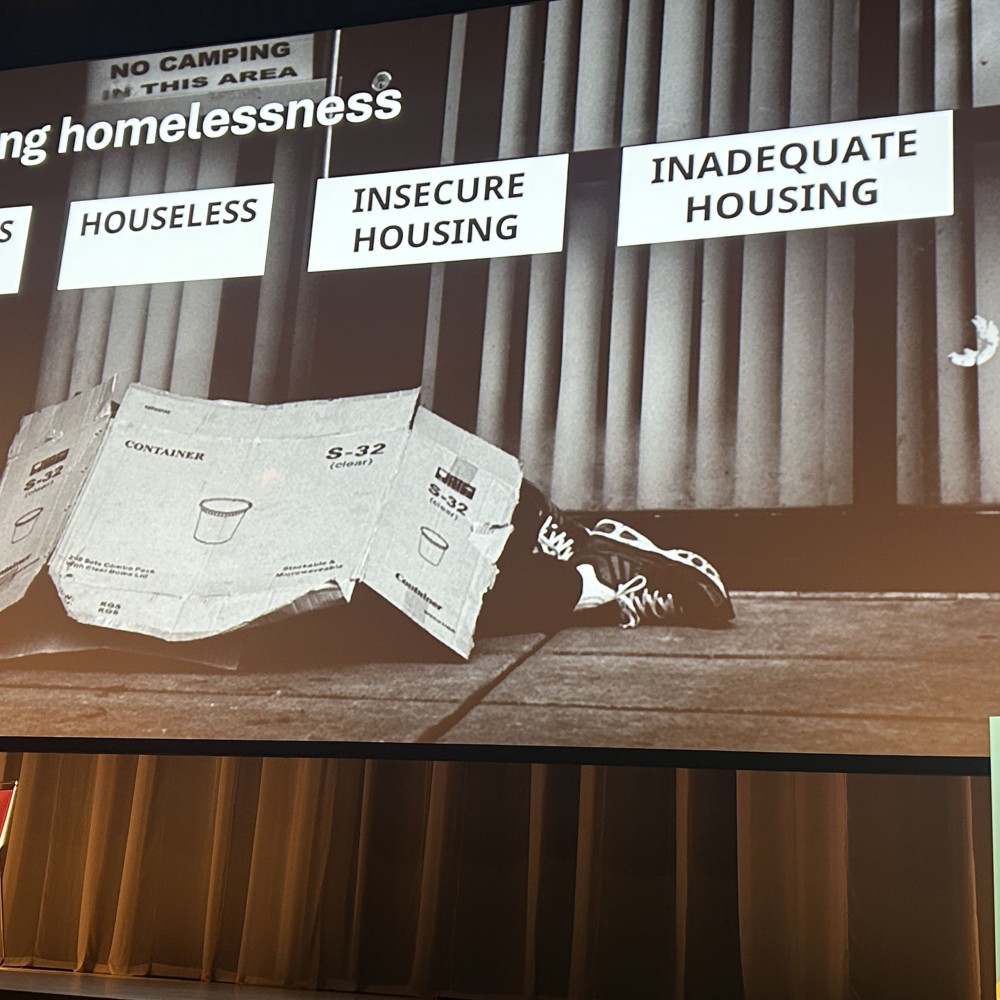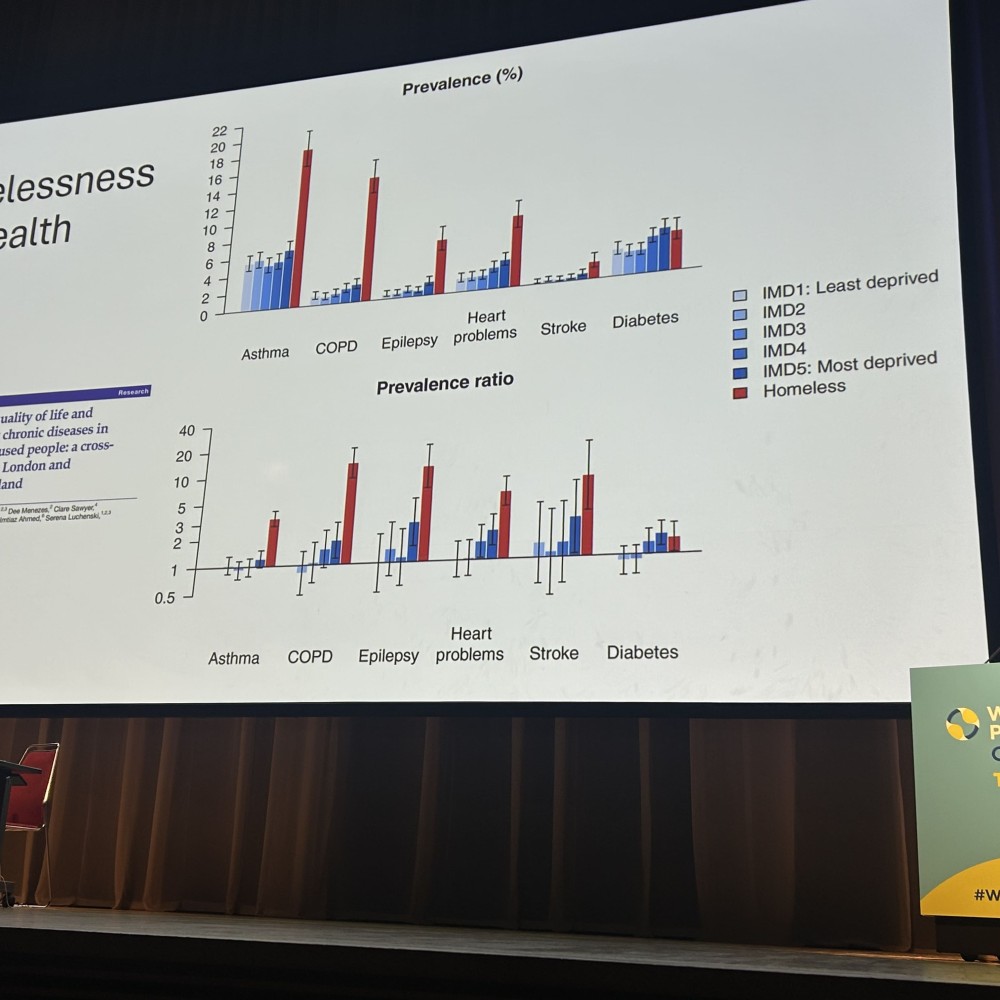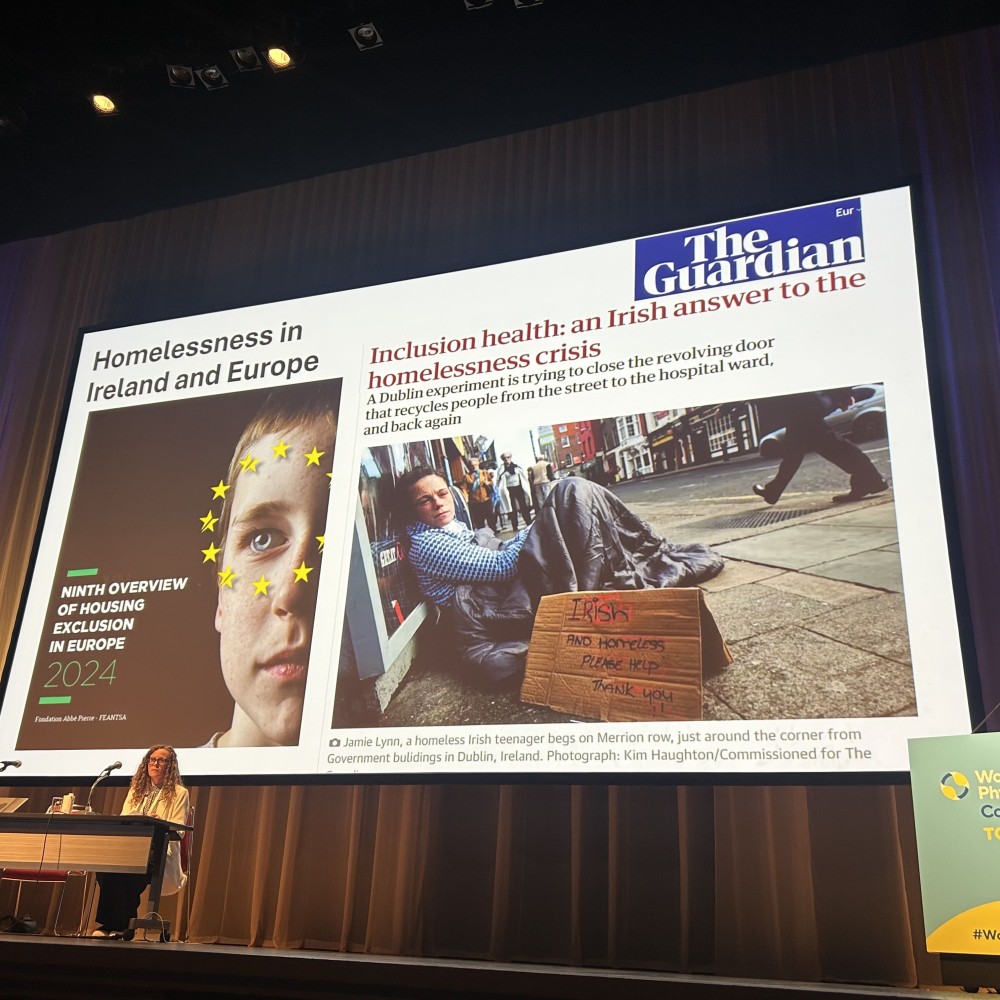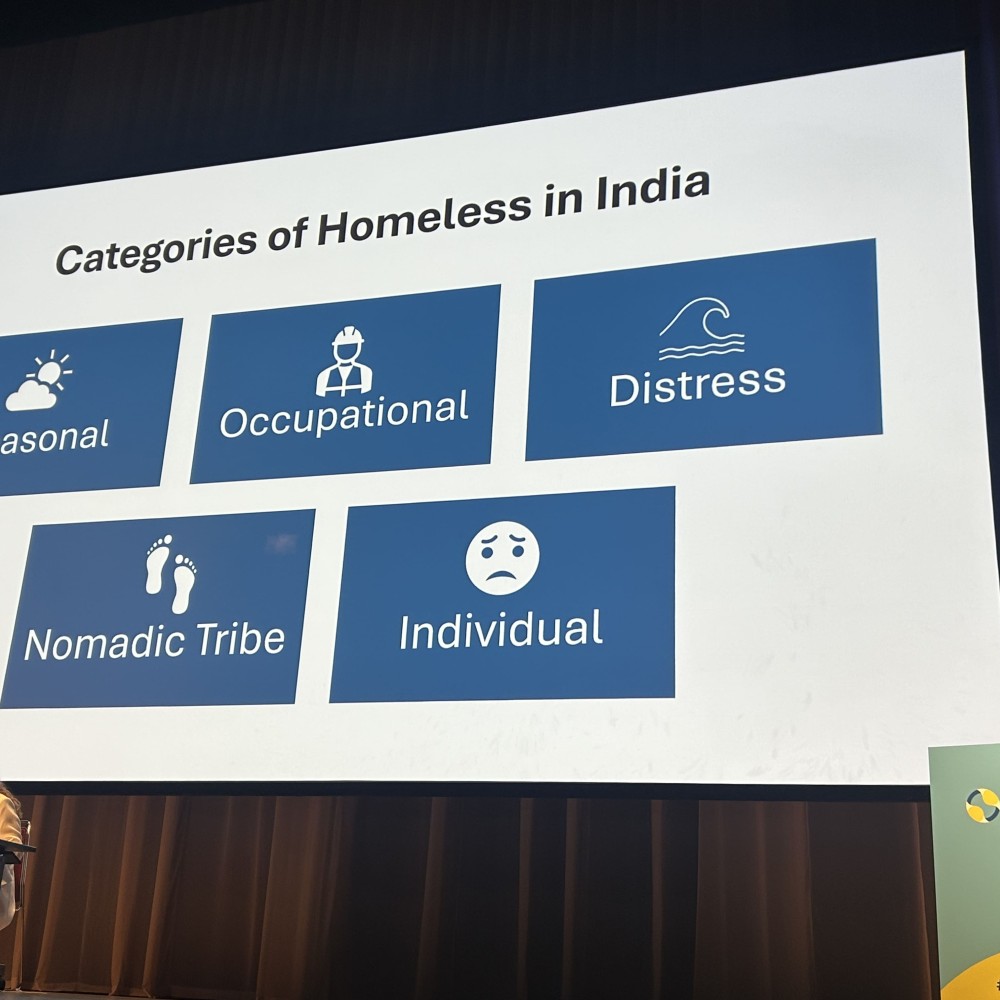Homelessness is not just a housing issue, it's a health crisis. According to the presenters at a focused symposium at the World Physiotherapy Congress 2025, 1.6 billion people globally are currently living in inadequate housing. People experiencing homelessness face a disproportionate burden of disease, with rates of chronic pain, neurological disorders, and frailty often manifesting decades earlier than in housed populations. Yet despite the relevance of physiotherapy, access to care remains limited or non-existent.
The focused symposium, Providing physiotherapy for people experiencing homelessness, brought together speakers from India, Ireland, the United Kingdom and the United States to spotlight how physiotherapy can reduce health disparities and foster dignity, trust and connection.
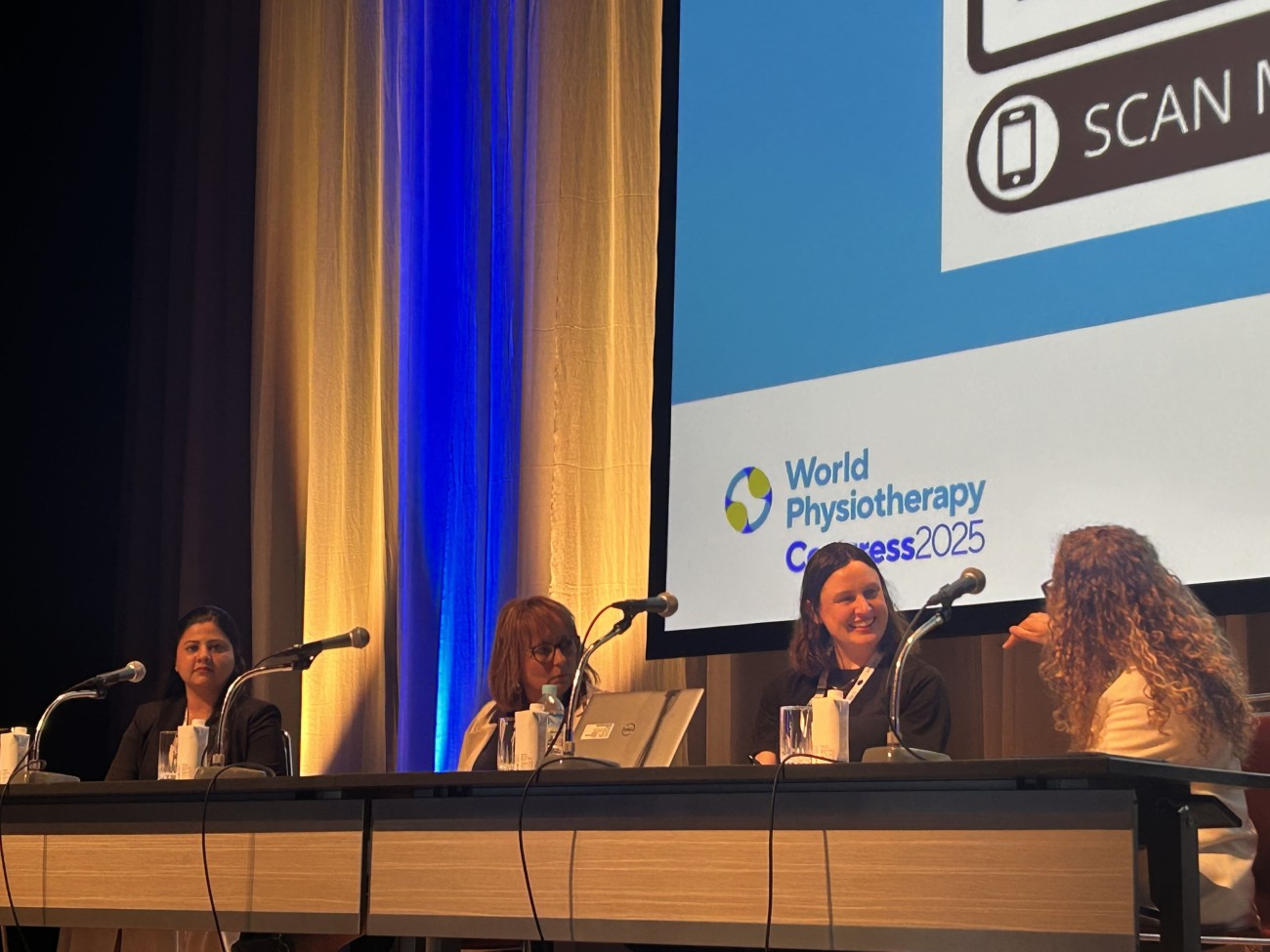
Chair Jo Dawes (UK) opened the session by reframing homelessness as a fluid and often invisible experience. "It’s not one thing," she said. "It can mean living on the street, in temporary shelter, or in housing that is unsafe or insecure. Each of these contexts presents different health challenges."
Salony Raskar (India) shared frontline experiences from India, where physiotherapy is rarely embedded into care for homeless communities. She described a patient in his early 40s with untreated neurological impairments unable to access even basic rehabilitation. "This individual had no ID. So, even if he wanted to access care—he couldn’t. That’s the reality," she said. "It was only through continuous contact, through consistent presence, that he started engaging with therapy."
Julie Broderick (Ireland) drew on research from Ireland showing how structured physical activity interventions—tailored and trauma-aware—help improve functional outcomes while also strengthening relationships and self-esteem. "Participants described feeling respected, part of something. That social connection had a measurable impact," she said.
Tonya Miller (US) presented her work in the United States, where she designs health promotion programs for people experiencing housing insecurity. Through weekly exercise sessions, participants gradually build not just mobility but confidence and connection to other services. "Physiotherapy offers an entry point," she said. "It can be the first safe contact that opens the door to a broader support system."
Across all contexts, the speakers acknowledged the lack of research and visibility for physiotherapy in this space. They also noted the over-representation of marginalised groups (including women, people with disabilities, culturally and linguistically diverse populations) within homeless communities.
The session closed with a call to adapt training, service design and research to meet the needs of those too often excluded.
For a profession that centres function, movement and connection, the call to reach out was profound and provocative.

